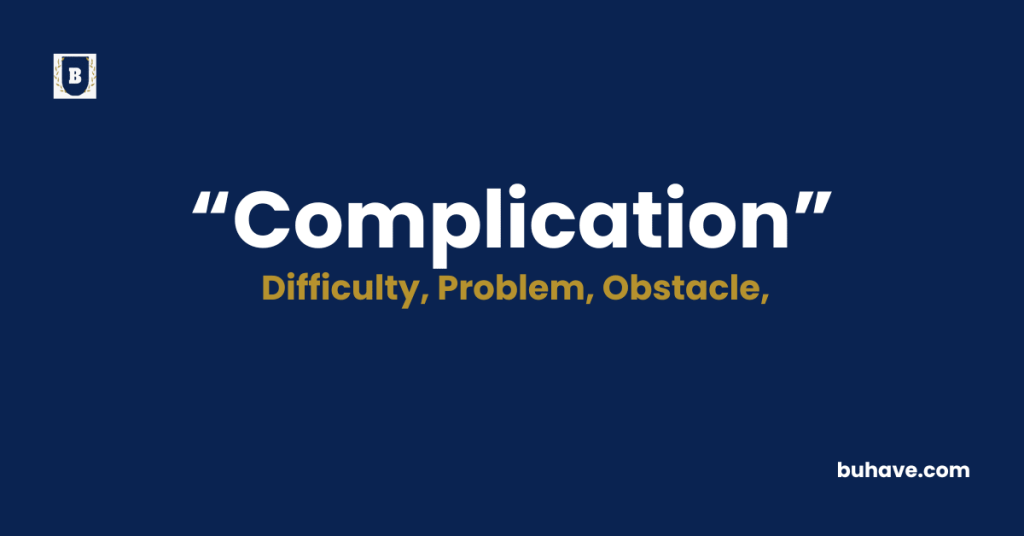The word ‘Complication’ (Noun) refers to a difficulty or problem that makes a situation harder to understand or deal with. In this guide, you’ll learn the full definition, synonyms, antonyms, etymology, and real-life examples of how to use ‘Complication’ correctly in sentences.
Complication Explained in Depth
A complete and detailed guide to the word ‘Complication’ including meaning, definition, examples, etymology, synonyms, and antonyms.
Meanings of Complication
Complication means an additional problem or obstacle that makes an already difficult situation more complex. It can arise in various contexts such as medical conditions, plans, relationships, or technical processes.
Definition
Complication is defined as something that introduces difficulty, confusion, or unexpected challenges to a situation. In medical terms, it refers to a secondary disease or condition that aggravates an existing illness.
Etymology
The word “complication” comes from the Latin word complicatio, meaning “a folding together” or “entanglement,” from com- (together) and plicare (to fold). Over time, it evolved to describe things becoming more difficult or involved.
Example Sentences
- The surgery went well, but a minor complication delayed her recovery.
- His late arrival added a complication to the carefully planned event.
- They resolved the main issue, but financial complications still remain.
Complication Synonyms
- Difficulty
- Obstacle
- Problem
- Issue
- Hurdle
- Setback
- Challenge
- Snag
- Entanglement
- Complexity
Complication Antonyms
- Simplicity
- Solution
- Clarity
- Ease
- Resolution
- Understanding
- Help
- Relief
- Assistance
- Order
FAQs about Complication
Here are some frequently asked questions (FAQs) about the word “Complication”
1. What does “complication” mean in a medical context?
In medicine, a complication is a secondary problem that worsens an existing illness or makes treatment more difficult.
2. Can complication be used in everyday language?
Yes, it’s often used to describe any added difficulty or problem in personal, professional, or technical situations.
3. Is “complication” always negative?
Typically, yes. A complication usually introduces more difficulty or delay, though it can sometimes be resolved with effort.
4. What’s the difference between “complication” and “difficulty”?
“Difficulty” refers to the overall challenge, while “complication” is often a specific factor that makes a situation more difficult.

















